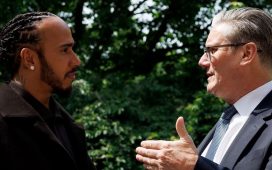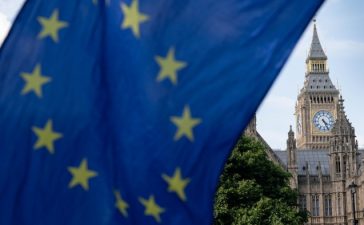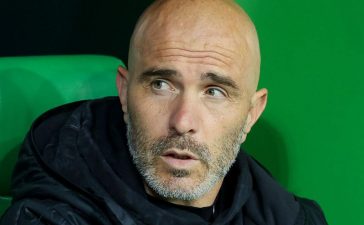No worries if you haven’t felt quite up to it: thanks to BBC Sounds, its recent Michael Gove festival, Surviving Politics, should be available for a year, to prove that no political life, however deeply disenchanting it might look, need now end in failure. Not while the BBC, with its extensive experience in rehabilitating widely detested politicians, is still there to pick up the pieces.
Just a short time after he decided not to stand for re-election (so avoiding displacement by a Lib Dem), this heavily promoted series reinvents Gove as a twinkling fount of political wisdom, a presenter who should now, if you set aside the countless reasons for his unpopularity, be as acceptable to its audience as any other. Be kind: doesn’t the officially “toxic” Gove, the Brexit hysteric, Cummings-patron, proroguing apologist, blob-detectorist, Blackadder botherer, Murdoch protege, elephant-lamp fancier, expert-denigrator and once-prized contact of Michelle Mone – “Judas” to his friends – deserve another chance? This is evidently the opinion of Paul Marshall, the billionaire buyer of the Spectator. In September, he appointed Gove its editor. The current issue features a piece by Nigel Farage. “Donald Trump,” he tells Spectator readers, “is just the most tremendous fun.”
As for the BBC’s cosy Surviving Politics format, in which Gove is billed as talking “candidly with politicians from different parties about the strengths and skills needed to survive when things get tough”, the premise seems to be that the Spectator editor, with a reputation principally for Brexit and treachery, is a respected guide to dilemmas often faced in politics.
You know, dilemmas like: shall I, or shall I not, attempt to frighten the public into voting leave with a shameless fiction about Turkey’s threat to the NHS? Or: just how many of my critics can I denigrate as “the blob”? Or even: am I justified in claiming this £34.99 cot mattress on expenses?
Since they could hardly depend on their presenter to include key episodes showing him in an abysmal light, perhaps the producers, with something more than Govian self-promotion in mind, were depending on promptings from his guests? If so, they must have been as disappointed as anyone else when, for instance, a discussion about political friendships – a subject on which Gove is, whatever you might think about experts, expert – ended without exploring his notorious habit of losing them. In his autobiography, David Cameron goes from calling him a “great friend” and “soulmate” to regretting his “ferocity and the mendacity”, to calling him a “foam-flecked Faragist”. Boris Johnson went from friendship to, after being stitched up, feeling “sad at Michael’s behaviour” to noting – nb Paul Marshall – that it is “always a good idea to watch him in the wing mirror”.
Any unpopular politician tempted, like Matt Hancock, Edwina Currie or Nadine Dorries, to choose I’m a Celebrity… as a stepping stone to acceptability might want to consider, instead, the BBC politics option: all the reinvention opportunities but without any bulls’ testicles or potentially troublesome campmates. Not with the politician in charge. Was it possible, when Amber Rudd explained why she’d resigned from Johnson’s cabinet over his proroguing of parliament – “I could not be complicit in what I felt was a lack of truth, truth and decency, really” – that Gove would avoid explaining, by way of full disclosure, that he had defended the illegal proroguing? Admittedly, it could have spoiled the collaborative mood.
Not that professional BBC interviewers would necessarily have done better. In what was described in a promotional excerpt on BBC Radio 4’s Today programme as a “long deep conversation” with the now Spectator editor, the exhausting podcast duo Amol Rajan and Nick Robinson managed to address Gove’s current support for Kamala Harris without mentioning his infamous Times interview with Trump in 2017, when journalist and subject posed for joyous thumbs-up snaps. (It later emerged that Rupert Murdoch had also been, unreported by Gove, in the room.) All in all, it’s difficult to see how, at a time when the BBC is laying off the sort of journalists who find things out, audiences benefited from its recent engagement of Michael Gove.
Not when the biggest headline to come out of the Surviving Politics series has been the revelation that it hurt Gove, deeply, when people were mean about his former wife, the Mail columnist Sarah Vine. To judge by the public response, not enough people have forgotten Ms Vine’s severe remarks on the Milibands at home, in a kitchen she considered inferior to her own. “There’s nothing here that makes me believe that he and Justine are not, in fact, aliens.”
The expectation, again, must have been that the public would simply accept nice Gove, without wondering what happened to the demented one who, in 2016, delivered an uninterrupted pro-Brexit rant on Today, featuring the sort of rhetoric that would disfigure the entire debate: “We’re voting to be hostages locked in the back of the car and driven headlong towards deeper EU integration.” Even then he dodged detailed challenge. As Johnson has confirmed, the leave champions were never capably exposed: “We had no plans for government, no plan for negotiations, because it was not our job.”
after newsletter promotion
For the corporation that relaunched Michael Portillo, Ann Widdecombe and its old enemy, Alastair Campbell, as talent, back when talent could speak its name, the Gove exercise was still, at best, ambitious. Even the new, relentlessly genial, Gove does not try to conceal his longstanding unpopularity. He playfully told Amol’n’Nick that his support in the current leadership election might blight his candidate’s chances. And yet, on Radio 4, his contributions are advertised as an attraction. Supposing a less professional network were now promoting him, you might wonder if they, like Cameron and Johnson before them, had been played.
If these politics programmes tell us anything, it’s that if the BBC does not yet treat politics as a game, it’s still captivated by people who do.











